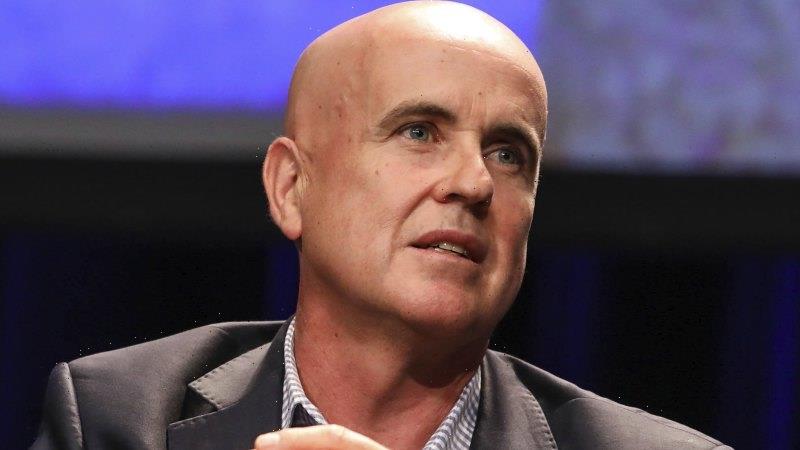Former NSW education minister Adrian Piccoli says it is factually wrong to blame “dud” public school teachers for the decline in the academic results of Australian students, adding the assertion was bad politics by federal education minister Stuart Robert ahead of the federal election.
In comments that angered some educators, academics, and the teachers union, Mr Robert declared in a speech on Thursday that a “bottom 10 per cent of teachers” were the key reason for Australia’s plummeting performance in the international education benchmark tests. But he assured independent schools leaders he was not talking about their schools, because they did not accept “dud teachers”.
Adrian Piccoli, former NSW education minister, has rejected claims by Federal Minister Stuart Robert that “dud teachers” at public schools are the key reason for students’ declining academic performance.Credit:Dominic Lorrimer
Mr Piccoli, who served six years as education minister in the Coalition state government, said it was “factually wrong” to suggest the long-term decline in Australian students’ results in the Programme for International Student Assessment (PISA) was a matter only for government schools.
“We’ve got this very long underperforming tail, but the biggest decline is in high-performing students not doing as well as they used to. A large chunk of those high performing students go to independent schools and selective government schools,” Mr Piccoli, the former director of the Gonski Institute for Education at the University of NSW, said.
He said when it came to students’ academic results, teachers were the biggest “in school” factor, but parental background and socioeconomic status were the overall largest influence.
He said Mr Robert’s remarks were also politically unwise so close to an election as many federal seats had thousands of teachers in them.
“There’s a dozen seats that could be determined by less than 3000 votes. Why would you go and deliberately poke teachers in the eye? It’s bad politics,” he said.
Australia’s results on the PISA, which tests 15-year-olds in reading, mathematics and science in more than 80 countries, have slipped from fourth to 16th in reading, eighth to 17th in science and 11th to 29th in maths over the past 20 years.
Defending his views on Friday, Mr Robert said his comments were not a “crack at state school teachers at all” but reasserted his claim that 10 per cent of teaching graduates were not up to standard.
“The vast bulk of the teachers right now, and they’re doing an extraordinary job, they really are,” Mr Robert, who is the acting minister, told Brisbane’s 4BC radio. “But there is also a small cohort of teachers, especially graduating from universities now, who are not passing basic English and maths.”
Mr Robert on Thursday said 10 per cent of teaching students were failing the Literacy and Numeracy Test for Initial Teacher Education students (LANTITE) in their third or fourth year of study, and called for the test to be moved to the first week of the first year of education degrees.
Glenn Fahey, a research fellow in education policy at the conservative-leaning Centre for Independent Studies, said students who failed the LANTITE could not be registered as practising teachers but could still pass their degree.
“If they are ultimately passing [the LANTITE] on a second go, I probably wouldn’t label them duds per se. If we’re going to talk about dud teachers, we should put a performance framework around it so we can properly identify who is a high performing and who is an underperforming teacher,” he said.
He said the minister’s comments about teacher quality should not be dismissed, but the issue was a matter for most schools, including in the independent sector.
”It’s very rare that all schools have got entirely a fully qualified and fully competent workforce and any profession that dismisses away any potential criticism is not one that is genuinely seeking to improve professional standards,” he said.
Jordana Hunter, education program director at centrist think tank the Grattan Institute, said governments should be focused on building a high-quality teaching workforce across the country, irrespective of the school sector.
“Without a doubt, some of the best teaching and learning I’ve seen has been in government schools, including schools in challenging areas,” Dr Hunter said.
The Morning Edition newsletter is our guide to the day’s most important and interesting stories, analysis and insights. Sign up here.
Most Viewed in Politics
From our partners
Source: Read Full Article

